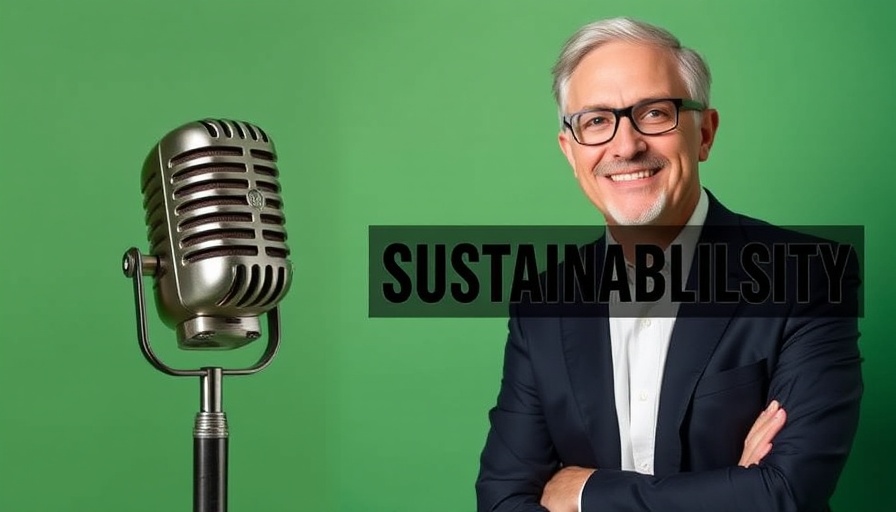
Renewable Energy's Bright Future Amid Political Uncertainties
The United States has made notable strides towards a sustainable energy future; however, the journey is far from complete. Currently, only about 21% of the nation's utility-scale electricity generation is derived from renewable sources. Data from the World Resources Institute reflects significant growth, with solar capacity increasing by 55% in 2023 alone, showcasing the potential for further expansion.
Tim Montague, a prominent advocate for clean energy, hosts the Clean Power Hour podcast, where he discusses the evolving landscape of energy innovation. Despite challenges posed by a politically fluctuating environment, Montague remains optimistic about the U.S.'s capability to lead in renewable energy. He argues that the transition is inevitable and necessary, emphasizing the economic advantages of investing in technologies like solar power and battery storage.
The Competitive Nature of Clean Energy Adoption
The clean energy sector is not just an environmental imperative; it’s becoming a cornerstone of economic competitiveness. The growing emphasis on a green economy aligns with legislative efforts like the Inflation Reduction Act and the Bipartisan Infrastructure Law, intended to bolster investment in renewable resources and infrastructure. Yet, as Montague points out, the U.S. faces intense competition from countries like China and various Northern European nations that have already capitalized on clean technology advancements.
While U.S. companies have been instrumental in developing clean technologies, challenges persist in turning these innovations into commercial successes. Altogether, a well-rounded strategy that combines innovation incentives with robust market policies can help the U.S. gain a competitive edge in the global marketplace for clean energy technologies.
State-Level Initiatives Fueling Progress
The growth of community solar projects across 24 states, coupled with net-metering programs in 42 states, provides a glimpse into active local initiatives stimulating renewable energy adoption. Such developments depict a favorable landscape for residential and commercial solar installations. Yet, many states struggle with inadequate legislation, which highlights the need for more effective policies to enhance state-level initiatives further.
According to the World Resources Institute, while solar and battery storage are seeing exceptional growth, some barriers, such as permitting challenges and inadequate infrastructure, hinder faster deployment of renewable technologies. Addressing these roadblocks at the state level should be prioritized, particularly as local opposition to clean energy initiatives rises.
Investment in Clean Technologies: A Path Forward
Despite the obstacles, opportunities remain ripe for investment in clean technologies — particularly as domestic manufacturing for solar components and other renewables increases, spurred by recent federal funding initiatives. The rise of battery storage is particularly noteworthy, with capacity doubling projected through the upcoming years. Such advancements are essential for supporting the grid, ensuring energy reliability, and meeting current and future demands.
Moreover, the significance of clean technologies cannot be understated. Over half of the new jobs created in the energy sector in 2023 were attributed to clean energy roles, effectively shifting job growth dynamics. This trend not only reshapes employment landscapes but also enhances economic resilience while combating climate change.
Looking Ahead: The Role of Policy and Innovation
The U.S. must prioritize energy innovation to fully realize its potential in the renewable sector. As Montague's discussions reflect, the integration of policies that support clean energy innovation into foreign and domestic strategy can foster long-term economic growth. The upcoming period of energy policy formulation may significantly influence whether the U.S. emerges as a leader or falls behind in the global transition to renewable energy.
In conclusion, while the U.S. has made commendable progress towards renewable energy adoption, realizing the goal of becoming a leader in this sector hinges on tackling regulatory obstacles, increasing investment, and fostering collaboration among states. The commitment to green technologies will not only benefit the environment but will also secure the nation's economic future.
If you are interested in learning more about renewable energy and how these innovations are shaping the future, subscribe to Tim Montague's Clean Power Hour podcast for deeper insights into emerging trends in clean energy.
 Add Row
Add Row  Add
Add 




Write A Comment